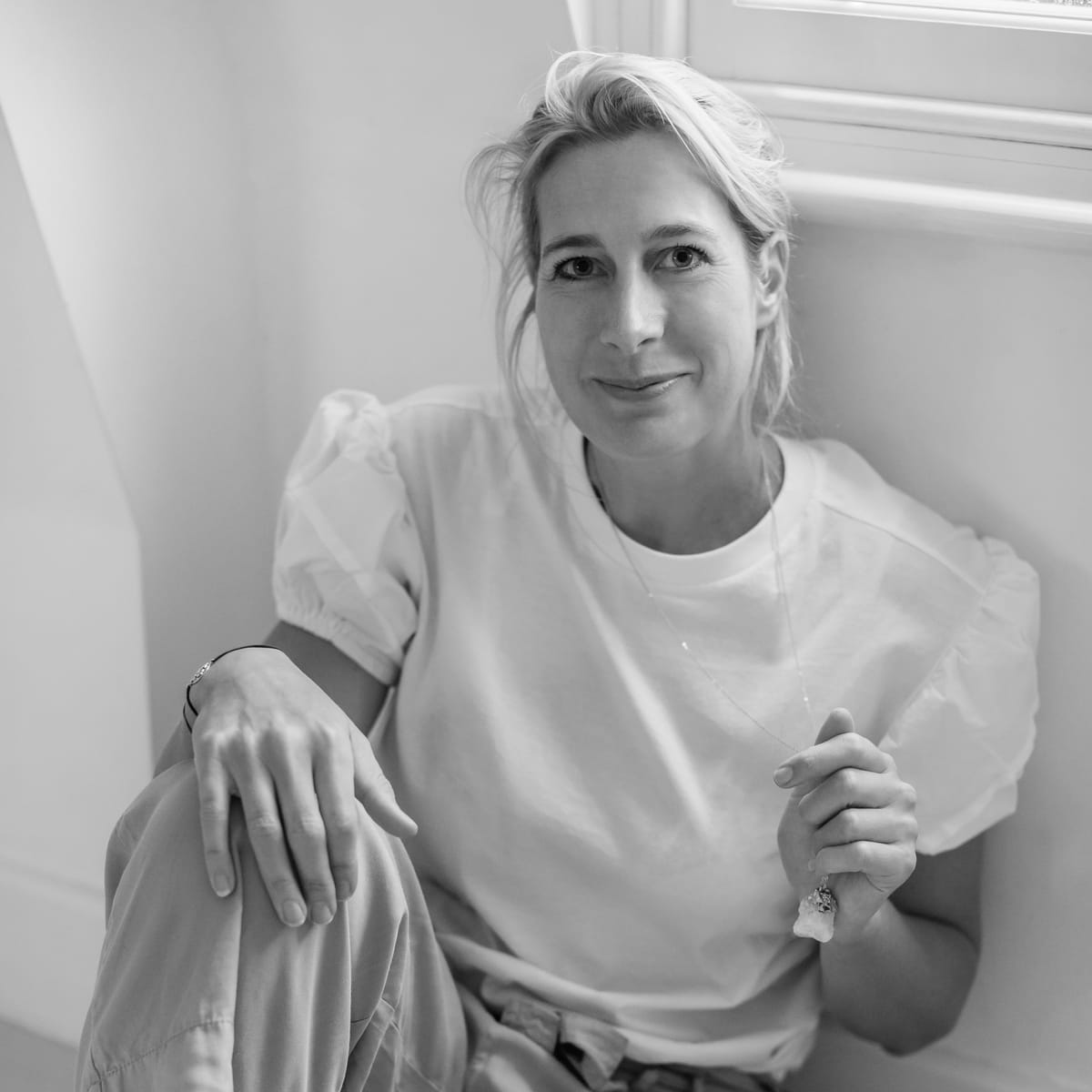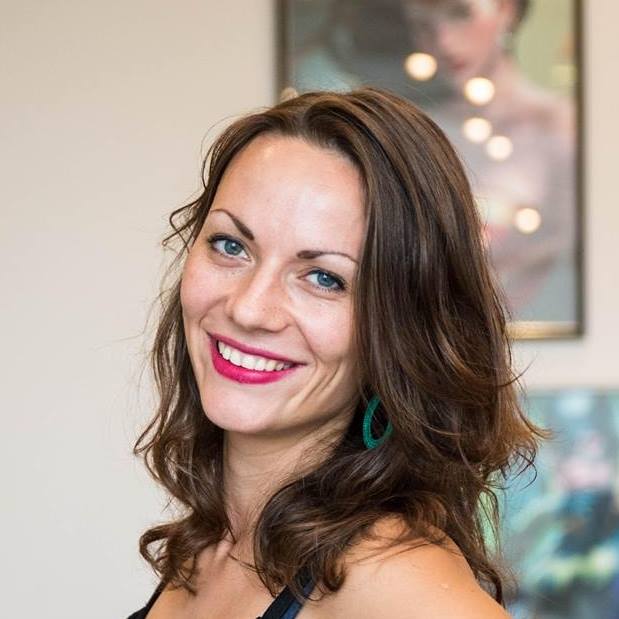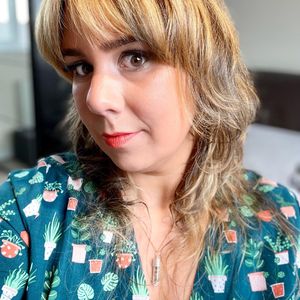Amsterdam, Netherlands
34-year-old Veroniek stepped into the boardroom of a Fortune 100 company, where she led innovations for a $2 billion business. Dressed in her power dress, she prepared to present an idea poised to impact millions of lives and contribute millions of dollars to the company's bottom line. She paused when one of the men in the room — one of many white men in dark suits — shoved his empty coffee cup toward her for a refill. She remembers feeling insecure and lost, like a stranger who didn't belong.
Experiences like this one and countless stories she has heard from other women inspired Veroniek to build Silatha. The company offers expertise, workshops, and training on biases and taboo subjects related to women's health, guiding companies to develop more inclusive cultures and create a psychologically safe workplace for everyone. Silatha also supports women dealing with these issues through education, guidance, and empowerment.
Finding purpose
In 2013, Veroniek took a break from her then 11-year-long stint in the corporate world to reflect on her life. Looking back on her working life, she felt conflicted. Seeing her achievements and milestones as a Senior Manager in leading international companies, she questioned the meaning of her professional success.
"I ticked all the boxes. I did everything that people like to see and that has to do with power and money. But I looked at my life and I didn't feel happy at all," she said. "Life was leading me and I wanted to consciously lead my life."
For Veroniek, the desire to take control of her life story led her to meditation, which, in turn, silenced constant mental chatter and allowed her to embrace the present moment fully. This shift brought a newfound sense of joy and purpose.
"I lived in monasteries in Vietnam, Japan, and Myanmar, and there it was easy to do my meditation and my practice because you have no other choice. That's the schedule. And then you come back in your day-to-day life and it's so incredibly hard to make space and time to do that practice that you need to keep that mindset."
Her experience meditating in Asia catalyzed the founding of Silatha, which initially started as a meditation app focusing on women's emotional wellbeing. The application provides specialized meditation sessions tailored to women's topics and features a tracking system for monitoring daily progress. It also offers extra support with live broadcasts covering various subjects.
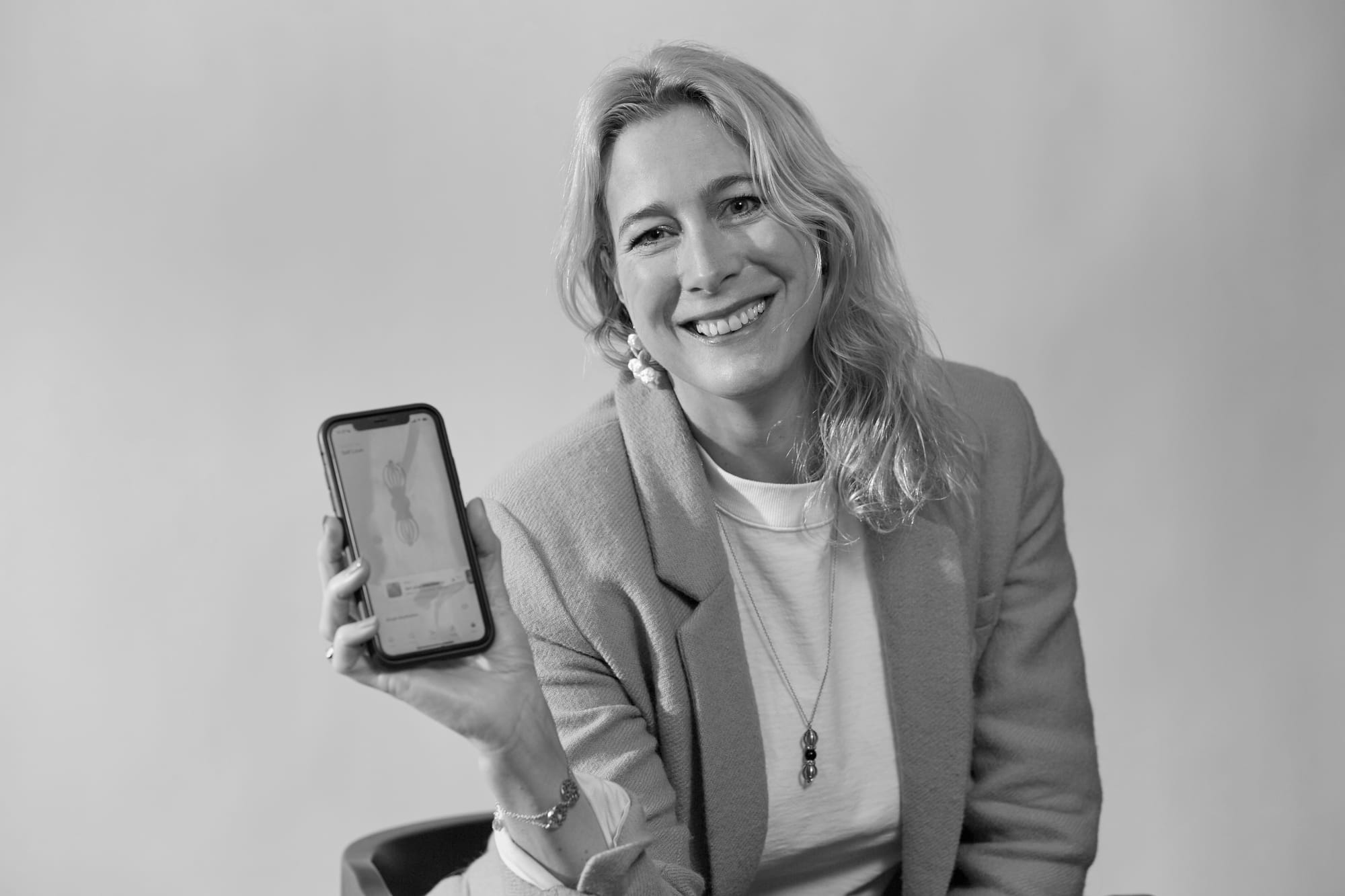
In 2021, Veroniek and the Silatha meditation app were selected by Brainz Magazine "as one of 500 Companies and Influential Leaders who are recognized for their entrepreneurial success, achievements, and dedication to helping others." It received the Meditation App of the Year Award by Prestige Awards the same year.
With a clear goal in mind, Veroniek aimed to share her approach to self-discovery and intention-setting, hoping to inspire other women to reflect on their life priorities — from a new mum who might feel overwhelmed to a businesswoman who might feel insecure at work due to biases.
Veroniek noticed that workplaces designed predominantly by and for a homogeneous group of white men overlook the intricate spectrum of women's challenges. Topics such as the menstrual cycle, fertility journeys, and (peri)menopause are seldom addressed within professional settings. The result, Veroniek said, is that many companies are missing out on the tangible, positive business impacts when women feel comfortable in their workplaces.
"Research shows that diverse teams with women make organizations more innovative, productive, and collaborative while increasing profitability by 15%," she explained.
"Then I decided to support enterprises that believe they can be more successful when creating an empowering and inclusive environment for women so that everyone can flourish."
It wasn't long before Silatha's focus expanded beyond meditation. Silatha transformed into a company offering expertise, dedicated workshops, meditations, peer-to-peer communities, and leadership training, guiding companies in transforming their culture. Their 8-month training programs address workplace biases and taboo subjects related to women's health.
In 2020, with a budding company and all the unknowns of being a first-time founder, Veroniek again paused to reflect: she knew close to nothing about the startup world.
"I knew the corporate world quite well. But I didn't know what it was to be a startup founder. I knew how to grow brands with a huge budget and I knew how to set certain strategies — but all within the framework of a big organization."
That's when she joined the Founder Institute.
Mastering the art of the pitch
The Founder Institute started as an American business incubator and startup launch program. With its roots firmly planted in Silicon Valley, today, FI's impact extends to chapters in over 180 cities and 65 nations. Since 2009, the structured accelerator programs have aided more than 6,800 entrepreneurs in securing funding surpassing $1.75 billion.
Veroniek joined Founder Institute's German chapter, where she found it wasn't just an educational space; it was a community of like-minded individuals who, similar to herself, were starting from scratch, experiencing all of entrepreneurship's unique twists and turns.
The Founder Institute kickstarts your entrepreneurial journey with its well-known 'Core Program.' Within the program, participants present the pitch weekly and receive feedback from mentors and potential investors, aiming to hit the milestones they need for investment and ongoing growth.
For Veroniek, these pitching sessions were the most rewarding yet challenging experience. She learned that not everyone will like your business, and that's okay. Things change all the time, and it's crucial to listen and understand different opinions. "When you need to sell your company to get investment, it's a new story. You need to learn, okay, what to do, how it works. 99 out of 100 will not invest. So, knowing that if you get 10 times no, it doesn't mean it's a bad idea. It means you are not at your 100 people yet."
As a startup founder focusing on women's issues, Veroniek found it especially hard to deal with investors who were mainly middle-aged white men. The femtech nature of her product, and especially tackling taboo topics, often left investors without a clear understanding of the problem at hand.
Beyond the gender biases in the industry, Veroniek also encountered the common skepticism women entrepreneurs face. Only a tiny fraction of funding reaches female founders. She quickly realized that proving herself was often more demanding as a woman entrepreneur.
"Men want to see that you already did this in the past and how does that translate to the future? Whereas for men we look at the opportunity, so [he] doesn't need to have done it already," she explained.
"It is a tricky game for them to understand that this [women's health] is a big problem and should be solved. So, I told myself not to take this [feedback] personally because the person simply wasn't aware of the problem. And how could he be? No-one talks about these taboo topics."
The continuous pitching and feedback sessions at the Founder Institute pushed Veroniek to think about the solution: how to form her pitch so that it resonated with male investors.
The first component was to connect with them on a personal level. For example, Veroniek discussed menopause beyond common perceptions, describing symptoms like sleep problems and mood changes. She'd even ask the investors if their wives might have experienced similar difficulties.
Another solution was to focus on data as much as possible. Veroniek pointed out that endometriosis, a painful disease, affects 10% of women— numbers many investors weren't aware of. This simple approach often made investors realize they lacked information on important topics, making them more open to considering the significance of the issues Silatha tackles.
"And sometimes I knew: Okay, this is just not the right person because it's too far away from what is within his field of understanding. And that's also okay."
An essential aspect of mastering how to convince investors was understanding that many people weren't interested in the spiritual part of Silatha. Emphasizing spirituality too much often led to others not taking it seriously. This awareness played a crucial role in shaping Silatha's strategy. They decided to tone down the spiritual elements when reaching out to workplaces and in their programs. While they still incorporate these aspects, they do so carefully, mindful not to overwhelm others and focus more on the data and value of the product.
Through the pitching sessions at the Founder Institute, Veroniek realized that it's not just about what someone says but also about learning their background, values, and beliefs. That helped her filter through the feedback and focus her energy in the right place. "I think that's an important learning I got from Founder Institute, and that really helped me build Silatha to where it is now," she said.
At the Founder Institute, Veroniek gained insights into how to convince people to get behind her mission and close deals, learning from her peers along the way. When she struggled to convince investors to get behind Silatha, she found the peer-to-peer support aspect of FI particularly valuable. This setup allowed her to develop a balanced view — to witness success stories alongside challenges. Seeing others struggle with similar issues made her feel a sense of shared experience, realizing they were all in it together.
Overall, her time at the Founder Institute helped Veroniek understand how the investor world works and how to deliver messages clearly in those initial stages. And more importantly, it taught her to believe in herself when it comes to leading a startup.
"It gave me confidence that I was a good founder," she's proud to say.
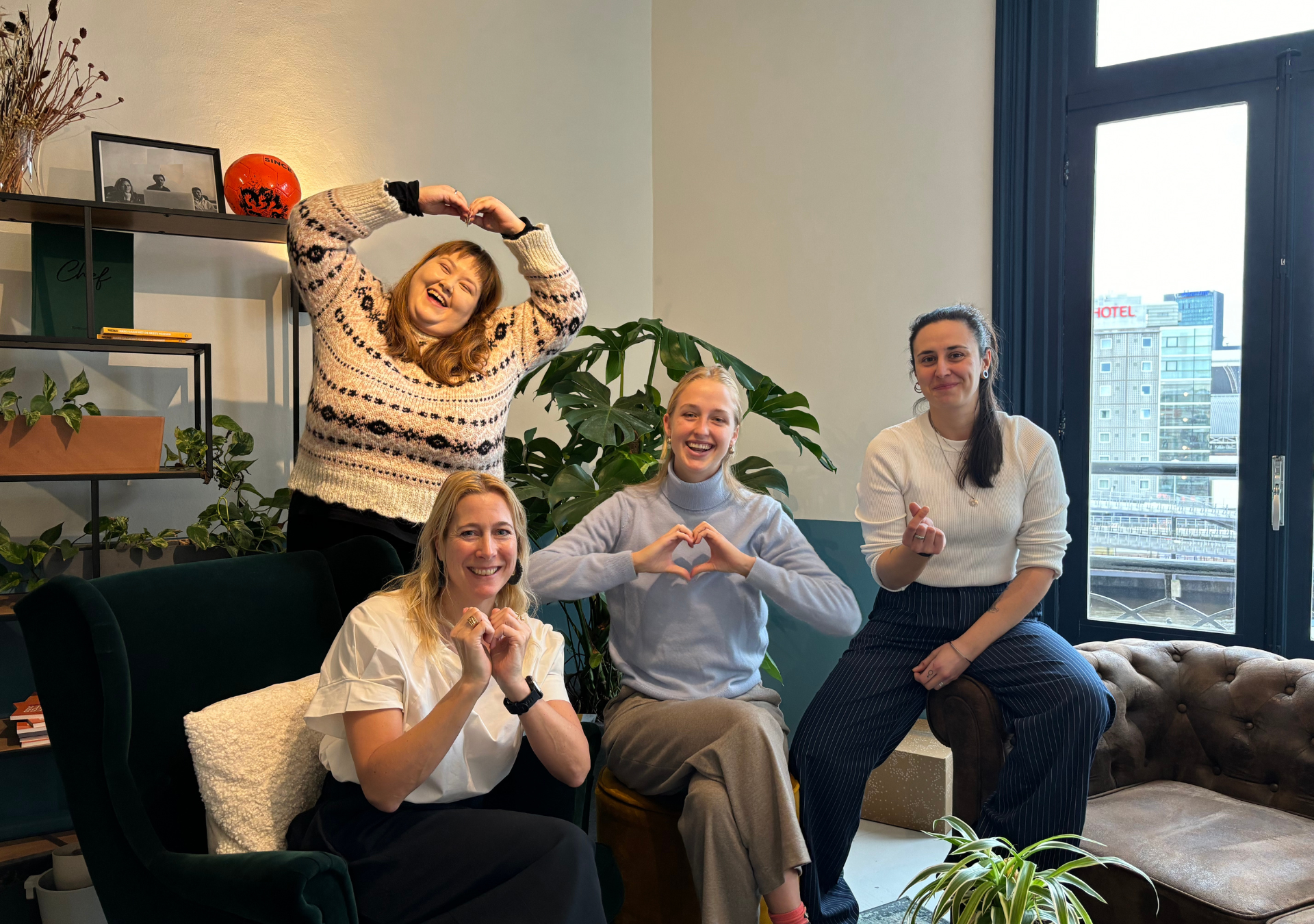
From the corporate world to startups
Outside the Founder Institute, Veroniek was also dealing with challenges and benefits from years in the corporate world.
The Founder Institute further reinforced that work experience, especially from a corporate background, could be an asset in entrepreneurship. She realized that having already made presentations and faced groups of people in her corporate role gave her confidence in pitching ideas and seeking investors for her startup. This prior experience contributed significantly to her self-assurance and ability to communicate effectively about her company and its offerings.
Another benefit that came from her corporate experience was structure. Veroniek is a disciplined person but not inherently structured herself. She learned how to create structure by being in the corporate world for almost two decades.
"I understood all the basics of how the Profit and Loss (P&L) works. How do you do a marketing campaign? How do you build a business strategy? And I think that's where I had a huge advantage compared to other people who were maybe going straight from university."
Technical challenges arose in managing Silatha's app development — another unfamiliar territory for Veroniek. Learning the intricacies of coding, understanding development timelines, and improving communication with engineers were essential steps that she took.
The tight budget that startups usually have, unlike big corporations, also posed a challenge. Veroniek kept asking herself: How do you attract a team of professionals with limited funds? Ultimately, she emphasized the value and meaningful mission of Silatha, which appealed to many female professionals and united them into a cohesive team with a shared purpose.
"At Silatha, my dedication revolves around nurturing authentic partnerships based on trust, respect, and mutual benefits. It's about taking those practical steps together towards our shared goals, embracing the power of collaboration in a very real and impactful way," wrote Carlota Homan, Partnership Manager at Silatha.
Creating awareness with a tight budget also proved problematic for Veroniek. So, she decided to do something she was good at, delivering passionate public speeches. That brought publicity without spending a penny because, with a limited budget, relying solely on advertising was not feasible.
The turning point came when, as mentioned previously, they received notable awards for Veroniek's leadership and Silatha's meditation app. The awards provided recognition and served as a powerful catalyst for increasing awareness about Silatha.
Changing company cultures
Three years later, Silatha has become a driving force behind fostering a psychologically safe work environment where discussions on taboo topics are not only acceptable but encouraged. On the one hand, the goal is to provide managers with a foundational understanding of issues like menopause and endometriosis, enabling them to communicate effectively with women facing these challenges. On the other hand, Silatha aims to nurture confidence in women, reassuring them that they are not alone in their experiences.
For leaders, the shift toward understanding the importance of wellbeing and diversity is gradually gaining traction. Yet, the challenge lies in ensuring that this understanding permeates an organization. The prevailing reluctance to discuss these topics is often fueled by a common misconception: that acknowledging such issues may portray women as weak. Silatha emphasizes the importance of open dialogue, arguing that ignoring these realities won't make them disappear.
Training and awareness are valuable, but the ultimate goal for Veroniek and Silatha is to instigate lasting shifts in behavior and create workplaces that embrace the strength found in the diverse experiences of women. "You can train people and make them aware, but if they don't change behavior, it's useless," she says.
Behavioral changes include increased empathy, open discussions, policies and practices catering to women's diverse needs, and more supportive management. That, in turn, helps retain more women employees and leaders — a productivity loss of €515 billion is attributed to disengaged women, and there is an average cost of €200,000 for each departing female leader.
Companies who've partnered with Silatha — including Nike, Mondelez International, and Omnicom MediaGroup — talk about positive feedback from female employees who feel seen and are now more committed to their companies.
Raising femtech
Veroniek thinks it is crucial for entrepreneurs to share their ideas and seek feedback and opinions, as doing so significantly strengthens business concepts, especially in the early stages, the same way it did for her at the Founder Institute. She said engaging in discussions not only refines business ideas but also clarifies their potential.
Veroniek also encourages entrepreneurs to persevere through the challenging investment cycle, acknowledging the numerous rejections that often come with it. Particularly for female founders, she suggests seeking support from peers who face similar challenges. Crowdfunding stands out as a potential avenue to secure funding. And if the idea serves a specific purpose, make sure the people you work with share the same passion and dedication because it can further grow your business, she concluded.
She believes women bring fresh perspectives to entrepreneurship but play with different rules than their male counterparts. Women are less risk-taking and don't just rapidly grow companies: "We will not show you that hockey stick because it's not realistic. Also, understand that women founders have a different strategy and a different way to go about their business. Like I know exactly what investors want to hear, but that doesn't mean I will exactly say that because it's just not what I believe how I can build a solid business."
Instead, Veroniek believes investing in women requires understanding biases and accepting and trusting in the distinct ways women lead and grow their companies — typically with more empathy and emotion. The latter, she said, is often considered a weakness at the workplace, especially when it comes from a female leader, due to gender stereotypes and misconceptions about effective leadership.
"It's [emotion] actually really important and it's the strength and why are diverse teams so much more successful is because women, for example, bring in more empathy and bring in more emotions and with that a different view and different questions. With that you get so much further," Veroniek explained.
The Women in the Workplace 2023 report showed that female senior leaders were 60% more inclined to offer emotional support to their teams, 24% more likely to ensure manageable workloads, and 26% more likely to assist team members in navigating work/life challenges.
Veroniek believes women possess a deep understanding of the human body, leading to innovative solutions for unspoken problems. "I'm convinced that if there are more women running companies, there will be more solutions for the planet and for people that will only do the world good," she says.
Sharing startup knowledge
"I used to work in food and coffee and thought: Oh, it's amazing to make a new chocolate because millions of people will enjoy it," recalled Veroniek. "Now I really change people's lives and how they feel more psychologically safe in a workplace. It's incredible to see that impact."
She has come a long way in her journey, and the Founder Institute played its role. FI gave Veroniek valuable insights, teaching her to keep her message clear and focus on data. Early exposure to the investor world helped her navigate challenges and grow her company to what it is today. At the same time, regular evaluations boosted her confidence as a founder.
Today, Veroniek teaches others as a mentor at the Founder Institute: "One of the things I realized when I became a mentor is how much I learned myself over time and how I actually became an expert when it comes to being an entrepreneur, being a founder."
Once a student herself, Veroniek grasps that the real value lies in the broader entrepreneurial journey — a wealth of learning that extends beyond specific skills and reaches others. "The most fulfilling [part] is the impact you have in the world and how you really change people's lives," she explained.
"And when I wake up in the morning, I pretty much always want to do my job, because I don't see it as a job. It's my life's mission."
The good that Silatha is doing regarding workplace equality is close to Veroniek's heart. A single workshop isn't sufficient for meaningful change because altering behavior requires ongoing efforts, but she still witnesses significant transformations in people throughout the process. Veroniek is moved by the feedback she receives, noting how individuals feel listened to and gain the courage to share their stories. For her, it is the core of her mission as an entrepreneur.
"A new door has opened for me and it feels so good to share this with others and to not feel lonely in it," said one of the workshop participants.
"I have an appointment today at the women's health clinic. I wouldn't have known what to ask for had it not been for these sessions. I'm learning as I go," wrote another participant.

